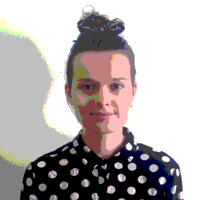A formula for success: progress on improving access to formula milk for mothers living with HIV

In April 2017 we published our briefing on access to formula milk for mothers living with HIV in the UK. At the time, we highlighted that despite clinical guidance recommending exclusive formula-feeding for the infants of mothers living with HIV to prevent vertical transmission, no one has clear commissioning responsibility for the costs of formula in the health service. We showed a patchwork of provision across the country, with schemes often only available where individual healthcare workers have championed the cause. Consequently, women living with HIV are subjected to a postcode lottery for access to what should be a key prevention right.
While we are yet to find a national solution, our findings have sparked essential discussion on this injustice, in parliament, in policy and amongst stakeholders looking for local solutions.
Formula milk can be expensive, costing on average £7-8 a week (although this can be much higher depending on how much the baby needs and which brand is purchased). Add to this is the cost of bottles and sterilising equipment, and for some women they’ll have already exceeded their weekly food budget for the whole family. Any financial support that is available is usually inadequate and is only available to those on certain benefits. This further compounds the vulnerability of those with no entitlement or recourse to public funds. We heard from midwives and HIV support services that some women were forced to go hungry to afford formula, to the detriment of their own health, or felt that they must resort to breastfeeding against clinical advice.
We believe that to alleviate the financial burden on mothers living with HIV and to ensure the optimal health of mothers and their infants, sufficient formula for the first 12 months of an infant’s life should be available to all mothers living with HIV.
Since publishing, we joined the steering group for the All Party Parliamentary Group on Infant Feeding and Inequalities inquiry into the cost of formula milk, and were able to influence their final recommendation that:
“Where breastfeeding is contraindicated because of a serious clinical condition (such as HIV) and exclusive formula feeding is recommended, families should be provided with infant formula for their infant’s first year.”
Alongside securing this recognition of the gap and clear recommendation in parliament, we also contributed to new clinical guidelines which now address the issue of access. The BHIVA guidelines for the management of HIV in pregnancy, explicitly recommend for the first time that:
“Women advised not to breastfeed for their baby’s health should be provided with free formula feed to minimise vertical transmission of HIV.”
These statements add to the growing body of policy and guidance making an evidence-based case for providing formula free to mothers living with HIV. But securing national provision based on this guidance is slow work, not least because it is a challenge to secure national-level funding for prevention which is normally managed at a local level, despite this being identified as best approach to ensure consistent provision.
In the meantime women continue to struggle to afford formula. That’s why it’s so important that HIV activists and organisations seek action at the local level too. At the beginning of December, Manchester City council announced a new formula milk scheme which will provide sterilising equipment, bottles and 12 months’ supply of formula for all mothers living with HIV resident in the area - regardless of income or immigration status. George House Trust (GHT), who successfully lobbied for the scheme and will administer it, used our findings to convince the local authority that this was a public health issue that cannot be neglected. This is a huge win for the rights of women living with HIV and their children in Manchester, and GHT have already set their sights on an expansion of the scheme across Greater Manchester.
We will continue to focus our efforts on finding a commissioning home for formula milk that ensures consistent provision across the country. However, many women need access now. If you are reading this blog and would like more information on how you might go about setting up a scheme in your local area, please don’t hesitate to get in touch – email rosalie.hayes@nat.org.uk or call our office on 0207 814 6767.


